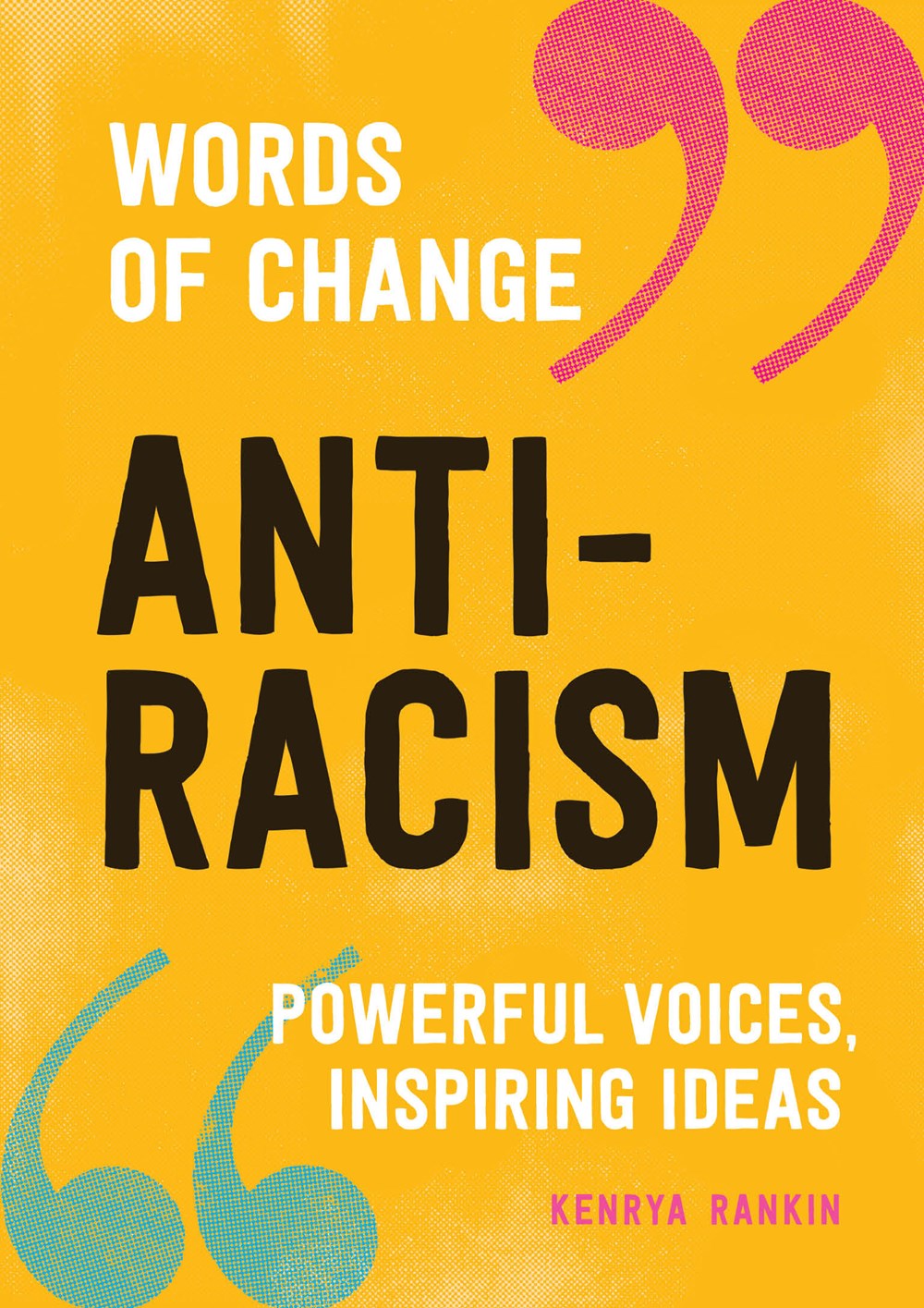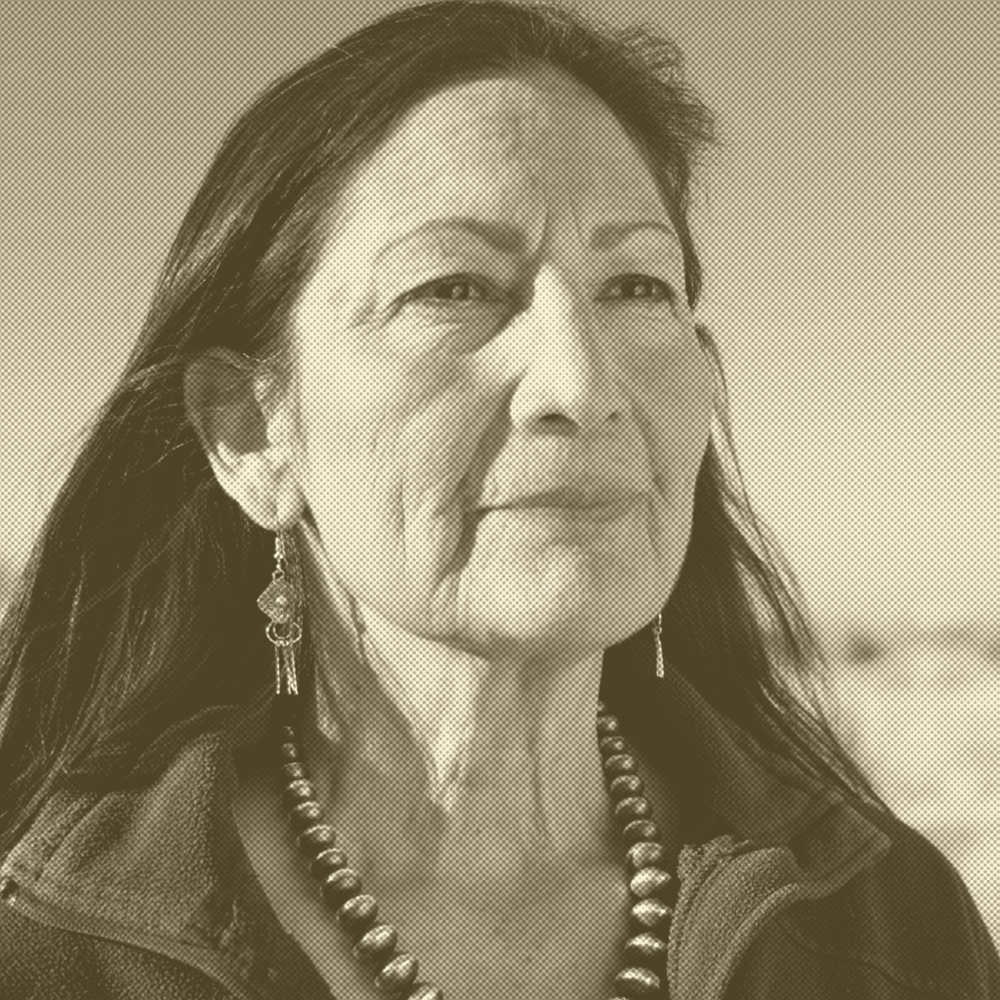|
|
Posted By Nicki Leone,
Thursday, April 27, 2023
|
 Report from the 2023 London Book Fair: Report from the 2023 London Book Fair:
Progress on DEI Benefits All of Publishing
In January The UK Publishers Association launched its Inclusivity Action Plan with a set of commitments for the industry with the goal of creating an industry which truly represents the the diversity of the UK's population.
The plan, which commits to enacting high-level policy and workforce changes within the next three years, has already been signed by over twenty UK publishers, one of whom, Bloomsbury, has been recognized by the London Book Fair for their efforts to diversifying their workforce and author talent. Founded on the principle that change requires cooperation, not competition, the Inclusivity Action Plan challenges the industry to implement inclusivity policies that are driven by senior leadership, develop new governance models, create flexible employment options, implement mentoring opportunities, and be proactive in creating opportunities for hiring from under-represented groups.
"This drive to be more inclusive is paying dividends. As we create more spaces of belonging, we are attracting more talent from diverse backgrounds and from all walks of life to meet the targets that have been set."
-Annie Muyang, Senior Diversity and Inclusion Manager, Bloomsbury Publishing.
Read more
This post has not been tagged.
Permalink
| Comments (0)
|
|
|
Posted By Nicki Leone,
Thursday, April 20, 2023
|
 "Think People, Not Programs" "Think People, Not Programs"
The Power of Empathetic Leadership
Business owners know instinctively that happy employees are productive employees. When your staff is happy your business experiences less turnover, your employees are more committed to the success of the company. This principle is highlighted in times of crisis, as demonstrated in the "Great Resignation" during the pandemic, when people were forced to prioritize the needs of their home lives over the demands of their jobs.
"Empathy," according to the findings of a recent study by Catalyst is not just something nice to have around the office, it has strategic value because it fosters innovation, engagement, and inclusion in the workplace.
The Catalyst study defines Empathy as "the skill of connecting with others to identify and understand their thoughts, perspectives, and emotions; and demonstrating that understanding with intention, care, and concern" and holds that it is both possible to cultivate empathy in the workplace and that doing so can be linked to many positive effects, including employees who are more innovative and resilient in the face of challenges and crises.
Key findings from the study:
- Empathy is a force for productivity, life-work integration, and positive work experiences.
Empathy boosts productivity.
- Employees with empathic managers and leaders are more innovative and engaged in their work than are employees with less empathic managers and leaders.
- Women of color experience less burnout when they have more empathic senior leaders.
- Empathic leaders respect employee life circumstances.
- Empathic leaders support both life and work needs.
- Empathic leaders foster inclusion.
- Senior leader empathy is linked to reduced intent to leave.
Companies with more empathetic leadership were 40%-60% higher in employee satisfaction and engagement, and 13% less likely to suffer work-related burnout: " In particular, while a high percentage of Arab, Asian, Black, Indigenous, and Latinx women said they were experiencing general workplace burnout, those with highly empathic senior leaders were less likely to report high levels of general workplace burnout (54%) than those with less empathic senior leaders (67%)"
Ultimately, empathetic leadership fosters an inclusive, equitable environment and is a key factor for any organization that prioritizes diversity, equity, and inclusivity.
At the end of the study is a sample of responses from the study's participants on what kinds of things demonstrated empathy for them in both written and face to face communications, as well as actions managers and leaders can take to show empathy with their employees and staff.
Read the full study here
This post has not been tagged.
Permalink
| Comments (0)
|
|
|
Posted By Nicki Leone,
Thursday, April 6, 2023
Updated: Thursday, April 13, 2023
|
 Big changes come from small steps and mistakes Big changes come from small steps and mistakes
In a recent interview with Workshop, Amrita Aggarwal of Bakau Consulting outlines some of the steps small businesses can take, and the pitfalls they face, in transforming their companies into ethical, anti-racist organizations. Pointing out that businesses which don't actively cultivate diversity risk failure because they do not reflect the communities they serve, and that will be noticed.
"It is a collective responsibility for us to give back and make sure we do better for the communities we’re serving." -Amrita Aggarwal
Aggarwal offers a number of ways small businesses can integrate anti-racist practices into their regular operations--from re-evaluating the company's mission and purpose, to changing some of the company messaging on social media, or making a donation to indigenous communities whose land they are on.
But most importantly, she encourages business owners not to stop with the creation of a diversity statement, but to follow through with real, substantive action. She also advises not to let the fear of making a mistake hamper real action. We learn from mistakes, they are signs that we are committed to change:
"The thing is, you are going to make mistakes. And that is okay. What is more important is the accountability that you take after you’ve made that mistake. Maybe, now that you evaluate your business, you find that this thing you did might have been racist. The first step is awareness and an acknowledgment that something has happened. Then you go and be accountable: what are some reparations that you can make for the harm that has been caused?" -Amrita Aggarwal
At the end of the interview Aggarwal offers an exceptionally thorough resource kit used by Bakau Consulting for helping businesses to strategize their diversity and inclusion goals which not only includes a collection of links and resources they find useful, but also specific strategies on topics such as "Inclusive Language," "Interrupting Unconscious Bias," and "LGBTQIA2S Inclusion."
This post has not been tagged.
Permalink
| Comments (0)
|
|
|
Posted By Nicki Leone,
Thursday, March 23, 2023
Updated: Thursday, April 13, 2023
|
 About Woke About Woke
Almost a year ago, Florida Governor Ron DeSantis signed House Bill 7 into law. The law regulates how race issues can be taught in the state's educational system, but HB 7 is better known as the Stop Wrongs Against Our Kids and Employees Act, or the
Stop WOKE Act.
Words gain and lose nuance and meaning in daily discourse as a matter of course, but how is it that "woke" -- shorthand for "being aware of inequality and racism" has now found its way onto a piece of legislation written specifically to suppress the awareness
of inequality and racism?
The word has been co-opted by right-wing activists as a term of contempt liberally applied (pun intended) to, well, almost anything they don't like.."everything from deadly mass shootings to lower military recruitment." (David Remnick, The Political Scene Podcast) And while this can sometimes border on the ridiculous, like the great band-aid controversy, it has also been blamed for the banking crisis. In other words, "Woke" in a right-wing context, is an expression of anger and fear.
But the word at its heart retains its meaning of being socially aware, being empathetic, being informed. The origins of "Woke" in its political sense are uncertain, but probably are found in the early twentieth century in the labor movement and early
Black activism. The linguist Tony Thorne (Dictionary of Contemporary Slang) notes that "woke" (as opposed to "awake") is a Southern US dialect. There are sporadic uses of "woke" in news articles and blues songs in the 50s and 60s, and it
was understood well enough as a concept that in 1965 Martin Luther King gave a commencement address to Oberlin College called "Remaining Awake Through a Great Revolution."
"Woke" was well established shorthand, especially in the Black community, by the time Erykah Badu released "Master Teacher" on her album New Amerykah -- often bookmarked as the moment the word entered popular culture. But Badu's "woke" is something more immediate than the general liberal definition of "socially aware.":
“Woke is definitely a black experience — woke is if someone put a burlap sack on your head, knocked you out, and put you in a new location and then you come to and understand where you are ain’t home and the people around you ain’t your neighbors.
They’re not acting in a neighborly fashion, they’re the ones who conked you on your head. You got kidnapped here and then you got punked out of your own language, everything. That’s woke — understanding what your ancestors went through. Just
being in touch with the struggle that our people have gone through here and understanding we’ve been fighting since the very day we touched down here. There was no year where the fight wasn’t going down.†--Georgia Anne Muldrow
For Black people to be woke is to be aware that you live in a place hostile to your existence.
In the wake of GeorgeF loyd's murder and Black Lives Matter movement, "woke" became the mainstream rallying cry for change, and in the process the word became appropriated and diluted, an inevitability since white people never dace the same consequences
and risks as Black people. "Socially Aware of Racial Injustice" means something entirely different for them and is a pallid substitute for a word that was meant to describe living under the constant threat of violence for being Black.
Inevitably, when words become co-opted people start to question whether or not they should even be used. "Slang amongst Black people is a love language," says Khiara M. Bridges, professor of law at UC Berkley School of Law, "and I am frustrated when that slang becomes appropriated and used by others and the meaning morphs. There’s something really
sinister about this term not only being taken from us but also deployed against us. It’s a double violation.â€
But at the same time, there is a power in reclaiming language from those who have appropriated it and weaponized it. Booksellers, who believe in the power of language to change the world for the better, know this better than anyone. Kathleen Newman-Bremang,
in her essay "When Did “Woke†Lose Its Meaning & How Do We Get It Back?" has a suggests
the best way to reclaim woke is to make people say what they mean when they use it:
"...succumbing to pressure to relinquish a word that was once so powerful to us over to people who only want to use it to harm us feels wrong. It’s heartbreaking, and I don’t want to do it. But we can’t deny that its meaning has shifted, and naming
exactly what people mean when they say it now is important for holding up a mirror to their white supremacist intentions. Next time someone uses “woke†in a derogatory manner, or calls a book or TV show “woke,†ask them what they really mean
by that term. Make them say the quiet part out loud. Because it might be harder to say “I hate Black people†than “that’s too woke.â€
This post has not been tagged.
Permalink
| Comments (0)
|
|
|
Posted By Nicki Leone,
Thursday, March 16, 2023
Updated: Thursday, April 13, 2023
|
 Confronting Book Banning Confronting Book Banning
Southern communities are facing an unprecedented, and frankly frightening, upswell in book challenges and book banning initiatives. No longer the result of individual complaints, book banning has become a politicized tool increasingly showing up in local and state legislation, where not only individual books, but entire topics (usually lumped under the heading of "gender studies" or "critical race theory" ) are being removed from school curricula and standardized testing.
As booksellers, it is easy to know how to feel in the face of these challenges, but it is more difficult, as small business owners, to know how to respond.
SIBA encourages booksellers to revisit the recording of the 2021 NVNR Banned Books Panel, featuring a conversation between Amy Sarig King (The War of the Black Rectangles), Sam Droke-Dickerson of Aaron's Books, and David Grogan from the American Booksellers for Free Expression (ABFE) .

The event also had a lively audience participation in the chat, where booksellers shared resources they found helpful when dealing with local book challenges. You can find links to those in in the SIBA blog.
Note, especially, the Banned Books Action Items sheet from Sam Droke-Dickerson, which provides a number of concrete steps stores can take to respond to book challenges in their own communities.
This post has not been tagged.
Permalink
| Comments (0)
|
|
|
Posted By Nicki Leone,
Thursday, March 9, 2023
Updated: Thursday, April 13, 2023
|
 A Conversation with James White & Krista White, authors of Anti-Racist Leadership: How to Transform Corporate Culture in a Race-Conscious World A Conversation with James White & Krista White, authors of Anti-Racist Leadership: How to Transform Corporate Culture in a Race-Conscious World
What does Anti-Racist leadership look like in practice?
Businesses seeking to foster an anti-racist culture within their companies face rethinking policies that have been in place, unquestioned and unexamined, often for years if not since the beginning of the organization. But what does this look like in practice?
James White and Krista White, President and CEO respectively of Jamba Juice and authors of Anti-Racist Leadership: How to Transform Corporate Culture in a Race-Conscious World, were recently interviewed by Chief Executives for Corporate Purpose (CECP) about the leadership qualities needed to effect real corporate change within an organization.
The first priority? Creating space for all backgrounds and voices:
"Anti-racist leadership is also about expanding the conversation beyond Black and white. Not only must it include other races, religions, and ethnic groups, demonstrably important by the recent prevalence of anti-Asian attacks and anti-Semitism, but it must also include every aspect of identity. Queer rights, trans rights, disability rights, and women’s rights, just to name a few, are included in how anti-racism is defined. To proclaim that Black Lives Matter or to Stop Asian Hate, we must first acknowledge and honor all intersections of these identities." --Krista White.
The authors share examples of successfull anti-racist leadership within a business setting, noting that what all the examples had in common were that policies changes were tied to the achievement of measurable goals. New policies were monitored and tracked to ensure they were doing what they were intended to do.
They also emphasize that collaboration -- using teams to assess problems and find solutions, is a more effective tool than a policy that is implemented from the top down. Collaboration is the difference between a new policy that is imposed, and one that is embraced.
"Our three most critical takeaways for CEOs are first – this work is about improving culture; the CEO should never delegate this leadership. Second – a rigorous examination of all people-related systems and processes is critical. Finally – the action and lever for sustainable change involves focusing on the middle management of the company." -- James White
Read more
This post has not been tagged.
Permalink
| Comments (0)
|
|
|
Posted By Nicki Leone,
Thursday, March 2, 2023
Updated: Thursday, April 13, 2023
|
 Happy Spring! Have you looked at your holiday messaging and calendar? Happy Spring! Have you looked at your holiday messaging and calendar?
Retail businesses in the United States tend to associate the word "holiday" with the fourth-quarter surge in gift-buying. At this point most stores are practiced in using non-demoninational language around what is known, which no explanation needed, as "the holiday shopping season."
Holidays, festivals, and celebrations occur year round, of course, but spring is a season especially significant in many religions. The Diversity Calendar published annually by Cultures Connecting lists more religious observances in February/March/April than in any other quarter of the year.
Americans may associate March with St. Patrick's Day, but it is also the time when Jewish people observe Purim, when Hindus celebrate Holi. It is the time of the Persian and Zoroastrian New Year, Nowruz, and the Islamic month of fasting, Ramadan.
These observances may require practicing staff or customers to be absent or need time off, or be unable to participating in certain activities because of religious restrictions or requirements. Now is the time to check your store calendar and note if any of your events or in-store activities will impact people who observe these faiths. Let your staff know you can make accommodations for them, and be mindful of how your store's schedule may affect your customers.
This post has not been tagged.
Permalink
| Comments (0)
|
|
|
Posted By Nicki Leone,
Sunday, February 26, 2023
Updated: Saturday, February 18, 2023
|
 "No one becomes ‘not racist,’ despite a tendency by Americans to identify themselves that way. We can only strive to be ‘anti-racist’ on a daily basis, to continually rededicate ourselves to the lifelong task of overcoming our country’s racist heritage." - Ibram X. Kendi "No one becomes ‘not racist,’ despite a tendency by Americans to identify themselves that way. We can only strive to be ‘anti-racist’ on a daily basis, to continually rededicate ourselves to the lifelong task of overcoming our country’s racist heritage." - Ibram X. Kendi
Author Photo Credit: Courtesy American University by Jeff Watts | Excerpted from Words of Change: Anti-Racism by permission of Sasquatch Books. Copyright 2020 By Kenyra Rankin. All rights reserved.
Reflect
Today’s prompt builds on yesterday’s reflection about how the Challenge has guided you to think and act differently, perhaps more boldly, on this journey of racial equity and justice.
How will you put any of your new commitments into action, starting as soon as Monday? What kinds of supports do you need to do so? Do you have those supports or can you organize them into being, perhaps with help from others?
There is work to do on your own, but much of the change we need will happen in collaboration with others as well. We are in this together. Who are your potential accomplices at work, home or in your community? In the greater book industry?
Also, consider committing to an ongoing practice, a way to chronicle the year ahead through writing, drawing, music or some other expression. Choose something that will work for you so that you can continue to reflect and integrate your learning from this Challenge, find opportunities for healing if needed and also see how your dreams for the future can begin to unfold. Let your own “garden” for justice blossom and extend across boundaries!
From SIBA: Thank you so much for being present and participating in this 21-Day Racial Equity Challenge. Please feel free to share with your staff and colleagues. May we all continue our work together as anti-racists to create positive change in our industry, our communities, and our world.
SIBA thanks its generous sponsors, who have made the 21-Day Racial Equity Challenge possible:
 
 Many of the quotes used in the Challenge are excerpted from Words of Change: Anti-Racism by permission of Sasquatch Books. Copyright 2020 By Kenyra Rankin. All rights reserved.
Although SIBA has modified when appropriate for a bookseller audience, the majority of prompts and resources come directly from the 21-Day Racial Equity Habit Building Challenge created by Food Solutions New England (FSNE), a regional collaborative network organized to support the emergence and continued viability of a New England food system that is a resilient driver of healthy food for all, racial equity, sustainable farming and fishing, and thriving communities. We are so grateful for their extraordinary work creating this program and making it available to other organizations.
Feedback? We welcome your thoughts.
This post has not been tagged.
Permalink
|
|
|
Posted By Nicki Leone,
Saturday, February 25, 2023
Updated: Saturday, February 18, 2023
|
 "Strong communities are born out of individuals being their best selves." - Leanne Betasamosake Simpson "Strong communities are born out of individuals being their best selves." - Leanne Betasamosake Simpson
Author Photo Credit: Nadya Kwandibens, Red Works Photography | Excerpted from Words of Change: Anti-Racism by permission of Sasquatch Books. Copyright 2020 By Kenyra Rankin. All rights reserved.
Reflect
What are your main takeaways from this year’s Challenge? Where are you now compared to before you started? How do you feel? What new knowledge or insights do you have? What hopes?
Reflecting back on these three weeks, select one or two prompts that really resonated with you and revisit them. Journal on why they have been highlights or piqued your interest and then think about ways to share them with friends or co-workers. What opportunities might this open up?
SIBA thanks its generous sponsors, who have made the 21-Day Racial Equity Challenge possible:
 
 Many of the quotes used in the Challenge are excerpted from Words of Change: Anti-Racism by permission of Sasquatch Books. Copyright 2020 By Kenyra Rankin. All rights reserved.
Although SIBA has modified when appropriate for a bookseller audience, the majority of prompts and resources come directly from the 21-Day Racial Equity Habit Building Challenge created by Food Solutions New England (FSNE), a regional collaborative network organized to support the emergence and continued viability of a New England food system that is a resilient driver of healthy food for all, racial equity, sustainable farming and fishing, and thriving communities. We are so grateful for their extraordinary work creating this program and making it available to other organizations.
Feedback? We welcome your thoughts.
This post has not been tagged.
Permalink
| Comments (0)
|
|
|
Posted By Nicki Leone,
Friday, February 24, 2023
Updated: Saturday, February 18, 2023
|
 "Racism will disappear when it’s [...] no longer profitable and no longer psychologically useful...If you take racism away from certain people-I mean vitriolic racism as well as the story of social racist-if you take that away, they may have to face something really terrible-mystery, self-misery, and deep pain about who they are. It’s just easier to say, ‘That one over there is the cause of all my problems.’" - Toni Morrison "Racism will disappear when it’s [...] no longer profitable and no longer psychologically useful...If you take racism away from certain people-I mean vitriolic racism as well as the story of social racist-if you take that away, they may have to face something really terrible-mystery, self-misery, and deep pain about who they are. It’s just easier to say, ‘That one over there is the cause of all my problems.’" - Toni Morrison
Author Photo Credit: Katy Grannan | Excerpted from Words of Change: Anti-Racism by permission of Sasquatch Books. Copyright 2020 By Kenyra Rankin. All rights reserved.
Learn
In her book Emergent Strategy, adrienne maree brown writes that we are engaged in an “imagination battle,” that the current conditions are the result of someone’s imagination, a de-humanizing and domination-oriented view. There are so many other alternatives, if we would be bold, broaden our view, and band together with one another to create new living and life-affirming stories.
Barbara A. Holmes is author of the book Race and the Cosmos, and she appeals to all of us to expand our views with the help of science and cosmology so that we can pull from a wider sense of who we are and could be. Watch this short video meditation (3 min) from Dr. Holmes offered by the Center for Action and Contemplation .
In addition, we invite you to watch two short segments of this video from a talk given by Penobscot educator, author and attorney Sherri Mitchell (:Weh’na Ha’mu Kwasset) on her book Sacred Instructions: Indigenous Wisdom for Living Spirit-Based Change (start at 19:35 and end at 24:12; then start at 29:12 and end at 33:02).
And lastly, watch the 2 minute video embedded on this webpage on “Bridging - Towards A Society Built on Belonging” from the Othering & Belonging Institute.
Reflect
There is a growing sense that these times are calling to live more concertedly into better ways of being and doing, ways that are just and regenerative of patterns of equitable well-being.
What thoughts, feelings and sensations did the videos provoke in you?
As you consider systems, including organizations and communities, that work for everyone (characterized by equitable belonging and well-being), what comes to mind and heart? What do you see, hear, feel, taste, sense?
Have you had even small glimpses of that future, in a moment, or interaction? What was that like? How could that be nurtured?
Act
- Reach out to a friend, family member, or colleague to have this conversation. What is their imagined world? How can we encourage and support the imaginations of others?
- Engage your organization, and/or your community (personal or greater) in an imagination conversation. See if you can weave “opportunity narratives” to counter the narratives of fear that are out there, especially in these times of pandemic.
Dig Deeper
- Richard Haynes is an African American artist who resides with his family in Portsmouth, New Hampshire and is originally from Charleston, South Carolina. Richard calls himself “a cultural keeper and maker” who “uses his art not only to make society aware of the invisible in this world but also to provoke unity.” One of his projects focuses on revisiting and re-visioning the past the way it might have gone differently with respect to racism and othering, so as to get a different vision of what the future could be. How might you retell the past as a way of creating inspiration and ideas for a just and liberated future?
Explore other links on the Challenge Resource Page. See how other Challenge participants are doing, and let them know how you are doing on the Challenge Bulletin Board
SIBA thanks its generous sponsors, who have made the 21-Day Racial Equity Challenge possible:
 
 Many of the quotes used in the Challenge are excerpted from Words of Change: Anti-Racism by permission of Sasquatch Books. Copyright 2020 By Kenyra Rankin. All rights reserved.
Although SIBA has modified when appropriate for a bookseller audience, the majority of prompts and resources come directly from the 21-Day Racial Equity Habit Building Challenge created by Food Solutions New England (FSNE), a regional collaborative network organized to support the emergence and continued viability of a New England food system that is a resilient driver of healthy food for all, racial equity, sustainable farming and fishing, and thriving communities. We are so grateful for their extraordinary work creating this program and making it available to other organizations.
Feedback? We welcome your thoughts.
This post has not been tagged.
Permalink
| Comments (0)
|
|
|
Posted By Nicki Leone,
Thursday, February 23, 2023
Updated: Saturday, February 18, 2023
|
 "My struggle has made me fierce, and we all need to be a little fierce to get things done." - Deb Haaland "My struggle has made me fierce, and we all need to be a little fierce to get things done." - Deb Haaland
Author Photo Credit: Deb for Congress| Excerpted from Words of Change: Anti-Racism by permission of Sasquatch Books. Copyright 2020 By Kenyra Rankin. All rights reserved.
Learn
Each generation is hopefully building on the work of those that came before. And this is ideally about multi-generational work.
In week 1, we offered a link to a short article and audio clip (3 min) on the importance of talking to children about their social identity. If this does not happen with care, it can be “done to them” with damaging results. We know that it can be challenging for some to know how to talk to and raise children who are savvy and brave about race and racism. The good news is that there is a growing body of research and resources to support parents, educators and caregivers, including the work of EmbraceRace.
We invite you to read some of the highlights of an interview with the founders of EmbraceRace, and if you have time to listen to as much of the interview as you can – “How to Talk to Your Kids About Race and Justice.” You might also look at this short tip sheets – “8 Tips for Talking to Young Children About Racial Injustice” and “10 Tips for Teaching and Talking to Kids About Race.”
Reflect
If you are a parent, educator or caregiver, how comfortable are you talking to your child/ren about race and racism? If you do talk to them, what strategies do you use? What has been effective? What has not been effective?
What do you see in the up and coming generations that gives you hope or pause?
Act
- Share these resources with (other) parents, educators and caregivers. Talk to them about their comfort levels, strategies, challenges and successes.
- Whether or not you are a parent, educator or caregiver, talk to the children in your life. Listen to how they think about race and racism. What are their visions for the future?
- Advocate for more education about race and racism at levels of education.
- Hold a meeting with your school representatives and the educators you work with to discuss how to implement anti-racist content and programing. Be an enthusiastic partner in these initiatives.
- Consider forming race-based caucuses within your group or team of co-workers, or talk with another person or two of a similar racial identity to you in order to take these conversations deeper and so you don’t hold them alone. For more information on caucusing and racial affinity groups, visit the Racial Equity Tools site and check out specific resources for BIPOC and white affinity groups.
- Engage in healing work for yourself. Review this handout from Anneliese Singh’s book The Racial Healing Handbook, focusing on the sections that are right for you (there is a section for white people and a section for people of color). Consider sharing learnings and reflections with others of similar racial identity to you.
Dig Deeper
Explore other links on the Challenge Resource Page. See how other Challenge participants are doing, and let them know how you are doing on the Challenge Bulletin Board
SIBA thanks its generous sponsors, who have made the 21-Day Racial Equity Challenge possible:
 
 Many of the quotes used in the Challenge are excerpted from Words of Change: Anti-Racism by permission of Sasquatch Books. Copyright 2020 By Kenyra Rankin. All rights reserved.
Although SIBA has modified when appropriate for a bookseller audience, the majority of prompts and resources come directly from the 21-Day Racial Equity Habit Building Challenge created by Food Solutions New England (FSNE), a regional collaborative network organized to support the emergence and continued viability of a New England food system that is a resilient driver of healthy food for all, racial equity, sustainable farming and fishing, and thriving communities. We are so grateful for their extraordinary work creating this program and making it available to other organizations.
Feedback? We welcome your thoughts.
This post has not been tagged.
Permalink
|
|
|
Posted By Nicki Leone,
Wednesday, February 22, 2023
Updated: Saturday, February 18, 2023
|
 "There is no anti-racist certification class. It’s a set of socioeconomic traps and cultural values that are fired up every time we interact with the world. It is a thing you have to keep scooping out of the boat of your life to keep from drowning in it. I know it’s hard work, but it’s the price you pay for owning everything." - Scott Woods "There is no anti-racist certification class. It’s a set of socioeconomic traps and cultural values that are fired up every time we interact with the world. It is a thing you have to keep scooping out of the boat of your life to keep from drowning in it. I know it’s hard work, but it’s the price you pay for owning everything." - Scott Woods
Author Photo Credit: Brick Cave Media | Excerpted from Words of Change: Anti-Racism by permission of Sasquatch Books. Copyright 2020 By Kenyra Rankin. All rights reserved.
Reflect
- What systems of governance in the bookselling world are you a part of and what and who do these serve?
- Have you read their governance policies? Are they anti-racist?
- Are those in charge of governance modeling diversity?
Act
Trade organizations like the American Booksellers Association and the Southern Independent Booksellers Alliance have begun the process of developing anti-racist governance practices. Those policies can serve as models that may be applied to your own business, as well as any local associations you belong to. Small business alliances, Main Street economic development associations, local Chambers of Commerce are all confronting these issues. Be a voice for implementing anti-racist governance practices in your local business alliances.
Dig Deeper
Explore other links on the Challenge Resource Page. See how other Challenge participants are doing, and let them know how you are doing on the Challenge Bulletin Board
SIBA thanks its generous sponsors, who have made the 21-Day Racial Equity Challenge possible:
 
 Many of the quotes used in the Challenge are excerpted from Words of Change: Anti-Racism by permission of Sasquatch Books. Copyright 2020 By Kenyra Rankin. All rights reserved.
Although SIBA has modified when appropriate for a bookseller audience, the majority of prompts and resources come directly from the 21-Day Racial Equity Habit Building Challenge created by Food Solutions New England (FSNE), a regional collaborative network organized to support the emergence and continued viability of a New England food system that is a resilient driver of healthy food for all, racial equity, sustainable farming and fishing, and thriving communities. We are so grateful for their extraordinary work creating this program and making it available to other organizations.
Feedback? We welcome your thoughts.
This post has not been tagged.
Permalink
|
|
|
Posted By Nicki Leone,
Tuesday, February 21, 2023
Updated: Saturday, February 18, 2023
|
 "The thing about anti-racism that [...]sits at the core of who I am is that I should never have to make myself small for everyone else to feel comfortable about my existence...Self actualization is at the core of an anti-racist world." - Jason Reynolds "The thing about anti-racism that [...]sits at the core of who I am is that I should never have to make myself small for everyone else to feel comfortable about my existence...Self actualization is at the core of an anti-racist world." - Jason Reynolds
Author Photo Credit: nate b. | Excerpted from Words of Change: Anti-Racism by permission of Sasquatch Books. Copyright 2020 By Kenyra Rankin. All rights reserved.
Learn
Government and governance have both been and continue to be forces for perpetuating and exacerbating racial inequities. By governance, we mean “the processes of interaction and decision-making among actors involved in collective problem-solving that
lead to the creation, reinforcement, or reproduction of social norms and institutions.” Governance happens through government, and also through organizations, communities, markets and networks.
There is a long history of formal and informal government actions and institutional governance that reinforces white supremacy at the expense of Black, Indigenous and people of color. The good news is that there has also been and continues to be efforts
to reform existing structures and to create new forms of governance that support justice and sovereignty, self-determination and racial equity. Watch this 4 minute video about the Government Alliance on Race and Equity (GARE),
an initiative of Race Forward and the Haas Institute for a Fair and Inclusive Society.
In addition, we are increasingly seeing new ways of making decisions in organizations and businesses through “new governance systems,” such as sociocracy and holacracy. See this example in a 3 minute video from Circle Forward.
Reflect
As you read/watch about government and governance shifts and alternatives that support racial equity, what comes up for you? What systems of governance are you a part of and what and who do these serve?
How active are you in advocating for shifts in government and governance so that racial justice moves to the center? What alternative governance forms are you engaged in that support more equitable processes and outcomes?
Reflect on your life as a bookseller:
- In your daily communications with colleagues, bookselling associations, publishers, publicists, authors-are you experiencing racial diversity?
- At your bookstore, are you sourcing your office, cleaning, cafe supplies, and professional services (accounting, legal and HR support) from primarily white providers? Is your bank BIPOC-owned and/or supportive of marginalized communities with
actions and grants?
- If you’re not seeing or supporting racial diversity in daily communications or in store sourcing of supplies and professional services, how does that make you feel?
- Could you actively change this? How?
- Further resources: Lee and Low Diversity Baseline Survey
-
Diverse Bookstores Face Unique Challenges
Act
- Watch the “Bookselling and Free Expression” conversation, sponsored by the regional bookseller associations, or read the transcript.
- Reach out to local and state government/elected officials and inquire about how they are considering racial inequities in their policy making. Consult the toolkits from GARE to bring questions and considerations to their attention.
- Bring a critical eye to the existing governance models in your store, other local businesses, and the greater community. How are these aligned with the goals of racial equity? A helpful tool for gauging this is a race equity impact assessment.
Bring these questions to members of these governing bodies.
- Experiment with new processes for interaction and decision-making.
Dig Deeper
Explore other links on the Challenge Resource Page. See how other Challenge participants are doing, and let them know how you are doing on the Challenge Bulletin Board
SIBA thanks its generous sponsors, who have made the 21-Day Racial Equity Challenge possible:
 

Many of the quotes used in the Challenge are excerpted from Words of Change: Anti-Racism by permission of Sasquatch Books. Copyright 2020 By Kenyra Rankin. All rights reserved.
Although SIBA has modified when appropriate for a bookseller audience, the majority of prompts and resources come directly from the 21-Day Racial Equity Habit Building Challenge created
by Food Solutions New England (FSNE), a regional collaborative network organized to support the emergence and continued viability of a New England food system that is a resilient driver of healthy food for all, racial equity, sustainable farming
and fishing, and thriving communities. We are so grateful for their extraordinary work creating this program and making it available to other organizations.
Feedback? We welcome your thoughts.
This post has not been tagged.
Permalink
|
|
|
Posted By Nicki Leone,
Monday, February 20, 2023
Updated: Saturday, February 18, 2023
|
 "If you stick a knife in my back nine inches and pull it out six inches, there's no progress. If you pull it all the way out that's not progress. Progress is healing the wound that the blow made. And they haven't even pulled the knife out much less heal the wound. They won't even admit the knife is there." - Malcolm X "If you stick a knife in my back nine inches and pull it out six inches, there's no progress. If you pull it all the way out that's not progress. Progress is healing the wound that the blow made. And they haven't even pulled the knife out much less heal the wound. They won't even admit the knife is there." - Malcolm X
Author Photo Credit: Marion Trikosko/Library of Congress | Quote: Television interview, March 1964
Learn
The National Black Food and Justice Alliance, along with growing numbers of regional and local groups, including white “accomplices,” are calling for reparations of land and resources to Black and Indigenous people to account for decades of extracted wealth. For more on the history of, and some of the numbers associated with, the economic damage in the African American community, see this infographic.
In the last several years, the US Government has settled a few lawsuits brought by American Indian tribes for mismanaging natural resources and other tribal assets. This has been a very slow process and many recognize that this has not accounted fully for the economic damage done in those communities. Clearly there is much more work to be done.
There is also a growing chorus of voices, across race and ethnicity, who are saying that reparations must not simply be transactional, they must be transformative in process, relationship and outcome. See this proposal to repair Racial Wealth Disparity.
We invite you to look through the resource links above, as well as this guide from Coming to the Table that includes a variety of ways to engage in the work of reparations.
.
Reflect
What comes up for you as you read these resources and solutions related to reparations? How are you already, or how might you be, engaged in reparations through your bookselling work, studies or community activity? Are reparations possible or enough? If not, what more or what else?
Dig Deeper
Explore other links on the Challenge Resource Page. See how other Challenge participants are doing, and let them know how you are doing on the Challenge Bulletin Board
SIBA thanks its generous sponsors, who have made the 21-Day Racial Equity Challenge possible:
 
 Many of the quotes used in the Challenge are excerpted from Words of Change: Anti-Racism by permission of Sasquatch Books. Copyright 2020 By Kenyra Rankin. All rights reserved.
Although SIBA has modified when appropriate for a bookseller audience, the majority of prompts and resources come directly from the 21-Day Racial Equity Habit Building Challenge created by Food Solutions New England (FSNE), a regional collaborative network organized to support the emergence and continued viability of a New England food system that is a resilient driver of healthy food for all, racial equity, sustainable farming and fishing, and thriving communities. We are so grateful for their extraordinary work creating this program and making it available to other organizations.
Feedback? We welcome your thoughts.
This post has not been tagged.
Permalink
|
|
|
Posted By Nicki Leone,
Sunday, February 19, 2023
Updated: Saturday, February 11, 2023
|
Author Photo Credit: N.A.H./PBS News Nour | Excerpted from Words of Change: Anti-Racism by permission of Sasquatch Books. Copyright 2020 By Kenyra Rankin. All rights reserved.
Reflect
As with last weekend, we invite you to find some quiet time (if possible and desirable) to get centered and to consider the past two weeks of your participation in the Challenge. Check in with yourself. What do you sense/feel? How are you physically? Intellectually? Emotionally? Spiritually? What are these sensations telling you? Explore other links on the Challenge Resource Page. See how other Challenge participants are doing, and let them know how you are doing on the Challenge Bulletin Board
SIBA thanks its generous sponsors, who have made the 21-Day Racial Equity Challenge possible:
 
 Many of the quotes used in the Challenge are excerpted from Words of Change: Anti-Racism by permission of Sasquatch Books. Copyright 2020 By Kenyra Rankin. All rights reserved.
Although SIBA has modified when appropriate for a bookseller audience, the majority of prompts and resources come directly from the 21-Day Racial Equity Habit Building Challenge created by Food Solutions New England (FSNE), a regional collaborative network organized to support the emergence and continued viability of a New England food system that is a resilient driver of healthy food for all, racial equity, sustainable farming and fishing, and thriving communities. We are so grateful for their extraordinary work creating this program and making it available to other organizations.
Feedback? We welcome your thoughts.
This post has not been tagged.
Permalink
|
|
|
Posted By Nicki Leone,
Saturday, February 18, 2023
Updated: Saturday, February 11, 2023
|
Author Photo Credit: Vogue.com/O’Shea Tometi | Excerpted from Words of Change: Anti-Racism by permission of Sasquatch Books. Copyright 2020 By Kenyra Rankin. All rights reserved.
Reflect
Take some time to catch up on this past week’s prompts. Reflect on the different approaches we have explored so far for addressing the different levels of racism (internalized, interpersonal, institutional, structural) and white superiority/supremacy.
Which ones jump out that you want to use or explore more? Are there others that come to mind or that you are already using? Please share! What questions are you left with?
Consider having a conversation with someone else about your thoughts, feelings and discoveries around ways to undo and promote healing from racism and white supremacy. Explore other links on the Challenge Resource Page. See how other Challenge participants are doing, and let them know how you are doing on the Challenge Bulletin Board
SIBA thanks its generous sponsors, who have made the 21-Day Racial Equity Challenge possible:
 
 Many of the quotes used in the Challenge are excerpted from Words of Change: Anti-Racism by permission of Sasquatch Books. Copyright 2020 By Kenyra Rankin. All rights reserved.
Although SIBA has modified when appropriate for a bookseller audience, the majority of prompts and resources come directly from the 21-Day Racial Equity Habit Building Challenge created by Food Solutions New England (FSNE), a regional collaborative network organized to support the emergence and continued viability of a New England food system that is a resilient driver of healthy food for all, racial equity, sustainable farming and fishing, and thriving communities. We are so grateful for their extraordinary work creating this program and making it available to other organizations.
Feedback? We welcome your thoughts.
This post has not been tagged.
Permalink
|
|
|
Posted By Nicki Leone,
Friday, February 17, 2023
Updated: Saturday, February 11, 2023
|
 "There’s this false notion that you have to separate and choose between issues of class and issues of race. What people do when they say that you need to separate class from race is that they are really just saying that people of color should come second. There is no such thing as talking about class without there being implications of the racial history of the United States. You just can’t do it." - Alexandria Ocasio-Cortez "There’s this false notion that you have to separate and choose between issues of class and issues of race. What people do when they say that you need to separate class from race is that they are really just saying that people of color should come second. There is no such thing as talking about class without there being implications of the racial history of the United States. You just can’t do it." - Alexandria Ocasio-Cortez
Author Photo Credit: Shutterstock.com/Jstone | Excerpted from Words of Change: Anti-Racism by permission of Sasquatch Books. Copyright 2020 By Kenyra Rankin. All rights reserved.
Learn
As Inequality.org puts it, “Systemic and structural racism has contributed to the persistence of race-based gaps that manifest in many different economic indicators. The starkest divides are in measures of household wealth, reflecting centuries of
white privilege that have made it particularly difficult for people of color to achieve economic security.” This gap means that many Black and Indigenous people and communities and People and Communities of Color are more at risk financially than
White people and communities at times of disruption. It means having less access to the means to purchase land, start a business, etc.
Read through the series of charts in this article that shows the widening racial wealth gaps in the United States. Also scroll through some of the graphics in this report on racialized economic disparities in the food system. You might also be interested in this resource from Prosperity Now to see how different states are doing with respect to the racial wealth gap.
Reflect
- What comes up for you as you take in this information about the racial wealth gap? Due to our intersectional identities, those of us with multiple less privileged and/or oppressed identities (based on gender, ethnicity, physical ability, age,
etc.) tend to have greater barriers to wealth accumulation. Take this into consideration in your reflections.
- How often do you consider implications of the racial wealth gap in the book industry?
Act
-
Read these reflections on addressing the racial wealth gap. Which of these might you act on in
your community and/or in the book industry?
-
Talk to others around you openly about money, wealth and inequities. See this as an example for those with privilege.
-
Watch this short video about the Racial Wealth Gap Simulation from Bread for the World and NETWORK. Then do the Simulation in your home, neighborhood, community, organization, school or business.
- Review your wages and benefits packages for booksellers. Do they meet your local “living wage” criteria?
-
Talk/write to your politicians about the need to address the racial wealth gap. Check out Prosperity Now for what might be included on your action agenda.
-
Independent businesses often have a list of charitable organizations they support with donations. Check over your list and ask if the groups on it meet your anti-racist criteria. If not, find ones that do.
Dig Deeper
Explore other links on the Challenge Resource Page. See how other Challenge participants are doing, and let them know how you are doing on the Challenge Bulletin Board
SIBA thanks its generous sponsors, who have made the 21-Day Racial Equity Challenge possible:
 

Many of the quotes used in the Challenge are excerpted from Words of Change: Anti-Racism by permission of Sasquatch Books. Copyright 2020 By Kenyra Rankin. All rights reserved.
Although SIBA has modified when appropriate for a bookseller audience, the majority of prompts and resources come directly from the 21-Day Racial Equity Habit Building Challenge created
by Food Solutions New England (FSNE), a regional collaborative network organized to support the emergence and continued viability of a New England food system that is a resilient driver of healthy food for all, racial equity, sustainable farming
and fishing, and thriving communities. We are so grateful for their extraordinary work creating this program and making it available to other organizations.
Feedback? We welcome your thoughts.
This post has not been tagged.
Permalink
|
|
|
Posted By Nicki Leone,
Thursday, February 16, 2023
Updated: Saturday, February 11, 2023
|
 "One of the primary issues we must face, especially in this sociopolitical climate, is the need for white people to do the hard work of wrestling with what it really means to be white." - Rev. Dr. Brenda Salter McNeil "One of the primary issues we must face, especially in this sociopolitical climate, is the need for white people to do the hard work of wrestling with what it really means to be white." - Rev. Dr. Brenda Salter McNeil
Author Photo Credit: Calvin Center for Faith & Writing | Excerpted from Words of Change: Anti-Racism by permission of Sasquatch Books. Copyright 2020 By Kenyra Rankin. All rights reserved.
Learn
Poet and novelist Ben Okri has written, “Beware of the stories you read or tell; subtly, at night, beneath the waters of consciousness, they are altering your world.” Systems scientist Sally J. Goerner has added, “The stories we tell ourselves about how the world works form our greatest survival tool.” Stories hold tremendous power in our world, work, and lives. Writer Chimamanda Adichie notes: “Stories have been used to dispossess and to malign. But stories can also be used to empower, and to humanize. Stories can break the dignity of a people. But stories can also repair that broken dignity.”
At Food Solutions New England, their narrative strategy and other capacity-building work have benefitted from the work of The Storytelling Project, which identifies different kinds of stories that have been told to advance or prevent justice: stock stories (maintain the unjust status quo), concealed stories (accounts of those who are marginalized and oppressed), resistance stories (stories of anti-racist struggles which also have lessons about resilience), and counter-stories (ways to interrupt the status quo and create transformational alternatives). For more about these different kinds of stories, see pages 7-9 of The Storytelling Curriculum.
Reflect
Reflect on the stories that circulate in your work, studies, and community life. Who and what do these stories promote and privilege? Are they advancing racial justice? Are they uplifting those who are marginalized? Are they inspiring new possibilities for racial equity and liberation?
Act
-
Bring this reflection exercise into your store or community. Consider what you can learn from stock stories about how racism operates. How might you disrupt these stories? What can the concealed stories you identify teach about a fuller picture of “reality?” Identify what resistance stories can teach you about anti-racist perspectives and practices that can expand our vision of what is possible. And what are the counter-stories that emerge and how can they guide you?
-
Challenge/disrupt the perpetuation of stock stories around you. Hold them up for critique. Propose alternatives.
-
In the South the word “heritage” is often used to sidestep or ignore the racist legacy of its history. “The American plantation wasn’t the quaint village community you saw depicted in your history textbook,” writes culinary historian Michael Twitty, “it was a labor camp system for exiled prisoners of war and victims of kidnapping.” Look at your own community’s landmarks and important cultural sites and ask if they are honoring a racist event or idea. Make a point of telling the other side of those stories. Recommended Reading: The Cooking Gene by Michael Twitty
Dig Deeper
Explore other links on the Challenge Resource Page. See how other Challenge participants are doing, and let them know how you are doing on the Challenge Bulletin Board
SIBA thanks its generous sponsors, who have made the 21-Day Racial Equity Challenge possible:
 
 Many of the quotes used in the Challenge are excerpted from Words of Change: Anti-Racism by permission of Sasquatch Books. Copyright 2020 By Kenyra Rankin. All rights reserved.
Although SIBA has modified when appropriate for a bookseller audience, the majority of prompts and resources come directly from the 21-Day Racial Equity Habit Building Challenge created by Food Solutions New England (FSNE), a regional collaborative network organized to support the emergence and continued viability of a New England food system that is a resilient driver of healthy food for all, racial equity, sustainable farming and fishing, and thriving communities. We are so grateful for their extraordinary work creating this program and making it available to other organizations.
Feedback? We welcome your thoughts.
This post has not been tagged.
Permalink
| Comments (0)
|
|
|
Posted By Nicki Leone,
Thursday, February 16, 2023
Updated: Thursday, April 13, 2023
|
 The 21-Day Challenge: What's Next? The 21-Day Challenge: What's Next?
For our closing event of the 21-Day Racial Equity Challenge, Jerod Grant of Cultures Connecting will facilitate a 90-minute session on Zoom on February 28 at 1:00 PM ET, 12:00 PM CT:
21-Day Racial Equity Challenge. Triumphs, Trials and the "What's Next?"
Register here
Designed to provide space to process what people have learned and how they can turn it into positive action, this event is open to anyone who is taking the Challenge, or has taken it in the past.
 About the facilitator: About the facilitator:
Jerod Q. Grant is a father, a writer, teacher, youth basketball coach, and life partner to Rashanah. He has over sixteen years of experience in higher education. Jerod has worked with K-12, colleges/universities, nonprofit, government, and corporate
organizations. He currently is a consultant for Cultures Connecting where his work is
centered in equity, justice, and belonging. Jerod is also an adjunct faculty in the School of Education and Educational Leadership at City University in Seattle where he teaches the Social Justice, Diversity, and Equity course. Jerod has had the opportunity
to speak and facilitate workshops across the U.S. and internationally.
This post has not been tagged.
Permalink
| Comments (0)
|
|
|
Posted By Nicki Leone,
Wednesday, February 15, 2023
Updated: Saturday, February 11, 2023
|
 "Each and every one of us has the capacity to be an oppressor. I want to encourage each and every one of us to interrogate how we might be an oppressor and how we might be able to become liberators for ourselves and each other." - Laverne Cox "Each and every one of us has the capacity to be an oppressor. I want to encourage each and every one of us to interrogate how we might be an oppressor and how we might be able to become liberators for ourselves and each other." - Laverne Cox
Author Photo Credit: Shutterstock/Udo Salters Photography | Excerpted from Words of Change: Anti-Racism by permission of Sasquatch Books. Copyright 2020 By Kenyra Rankin. All rights reserved.
Reflect
-
Where would you put your organization (bookstore or other organization in the book industry) on these two continua? Is this helpful? If so, how? Where would you ideally like to see your organization or group?
-
What would it take to get there? What is your next step?
Dig Deeper
Explore other links on the Challenge Resource Page. See how other Challenge participants are doing, and let them know how you are doing on the Challenge Bulletin Board
SIBA thanks its generous sponsors, who have made the 21-Day Racial Equity Challenge possible:
 
 Many of the quotes used in the Challenge are excerpted from Words of Change: Anti-Racism by permission of Sasquatch Books. Copyright 2020 By Kenyra Rankin. All rights reserved.
Although SIBA has modified when appropriate for a bookseller audience, the majority of prompts and resources come directly from the 21-Day Racial Equity Habit Building Challenge created by Food Solutions New England (FSNE), a regional collaborative network organized to support the emergence and continued viability of a New England food system that is a resilient driver of healthy food for all, racial equity, sustainable farming and fishing, and thriving communities. We are so grateful for their extraordinary work creating this program and making it available to other organizations.
Feedback? We welcome your thoughts.
This post has not been tagged.
Permalink
| Comments (0)
|
|